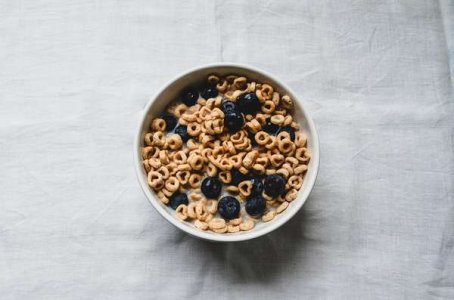Boost your brainpower with these 4 cereals – experts expose ones you must avoid!
- Replies 0
As we age, our morning routine becomes more than just a start to the day—it's an opportunity to nourish our bodies and minds.
And what's more quintessential to an American breakfast than a bowl of cereal?
But before you reach for that colorful box with the cartoon character on the front, let's talk about how your choice of cereal can impact your brain health.
Recent insights from Barbara J. Sahakian and Christelle Langley of the University of Cambridge have stirred the pot in the world of nutritional neuroscience.
They've highlighted a fascinating link between cereal consumption and brain development, pointing to the gene CPLX3—a key player in protein synthesis and cellular structure and function.

Their findings suggest that a higher intake of certain cereals correlates with improved cognition and increased brain volume.
While the science community is still unraveling the exact mechanisms, the message is clear: what you spoon into your bowl each morning could be spoon-feeding your brain's health.
The Top 4 Brain-Boosting Cereals
1. Whole-Grain Muesli with Seeds and Nuts
Professor Sahakian, a clinical neuropsychologist, champions whole-grain muesli mixed with seeds and nuts. This power-packed combination delivers essential proteins that maintain lean body mass and support muscle and bone health—critical factors as we navigate our golden years.
2. Bran Flakes
Cognitive neuroscientist Langley prefers bran flakes, a cereal low in sugar but high in fiber. Fiber aids digestion and helps maintain steady blood sugar levels, which is crucial for optimal brain function.
3. Low-Sugar Muesli
Another excellent choice is low-sugar muesli. It provides the benefits of whole grains without the cognitive pitfalls of excessive sugar intake.
4. Oatmeal
Not to be overlooked, oatmeal is a hearty option that can be customized with brain-healthy toppings like walnuts, almonds, and fresh berries. It's a warm and comforting choice that supports brain health and keeps you full until lunch.
Now, let's talk about the cereals to avoid. Sahakian warns against those high in salt, sugar, or saturated fats. These ingredients can impair neural function and hinder the brain's ability to form new connections, ultimately affecting cognition.
If you find your cereal a bit too bland, there are brain-friendly ways to sweeten the deal. Sahakian recommends adding no-fat or low-fat milk, yogurt, or a handful of blueberries.
These additions provide sweetness and nutrients without the negative effects of added sugars.
Also read: You don’t have to give up snacking–Transform your diet instantly with these 14 irresistible Costco snacks!

Have you tried switching up your breakfast cereals for better brain health? Maybe you have a favorite recipe that combines taste and nutrition? Share your experiences and tips in the comments below!
And what's more quintessential to an American breakfast than a bowl of cereal?
But before you reach for that colorful box with the cartoon character on the front, let's talk about how your choice of cereal can impact your brain health.
Recent insights from Barbara J. Sahakian and Christelle Langley of the University of Cambridge have stirred the pot in the world of nutritional neuroscience.
They've highlighted a fascinating link between cereal consumption and brain development, pointing to the gene CPLX3—a key player in protein synthesis and cellular structure and function.

Eating cereals, particularly those high in whole grains, has been linked to better brain function and increased brain volume. Image source: Deborah Hudson / Pixabay.
Their findings suggest that a higher intake of certain cereals correlates with improved cognition and increased brain volume.
While the science community is still unraveling the exact mechanisms, the message is clear: what you spoon into your bowl each morning could be spoon-feeding your brain's health.
The Top 4 Brain-Boosting Cereals
1. Whole-Grain Muesli with Seeds and Nuts
Professor Sahakian, a clinical neuropsychologist, champions whole-grain muesli mixed with seeds and nuts. This power-packed combination delivers essential proteins that maintain lean body mass and support muscle and bone health—critical factors as we navigate our golden years.
2. Bran Flakes
Cognitive neuroscientist Langley prefers bran flakes, a cereal low in sugar but high in fiber. Fiber aids digestion and helps maintain steady blood sugar levels, which is crucial for optimal brain function.
3. Low-Sugar Muesli
Another excellent choice is low-sugar muesli. It provides the benefits of whole grains without the cognitive pitfalls of excessive sugar intake.
4. Oatmeal
Not to be overlooked, oatmeal is a hearty option that can be customized with brain-healthy toppings like walnuts, almonds, and fresh berries. It's a warm and comforting choice that supports brain health and keeps you full until lunch.
Now, let's talk about the cereals to avoid. Sahakian warns against those high in salt, sugar, or saturated fats. These ingredients can impair neural function and hinder the brain's ability to form new connections, ultimately affecting cognition.
If you find your cereal a bit too bland, there are brain-friendly ways to sweeten the deal. Sahakian recommends adding no-fat or low-fat milk, yogurt, or a handful of blueberries.
These additions provide sweetness and nutrients without the negative effects of added sugars.
Also read: You don’t have to give up snacking–Transform your diet instantly with these 14 irresistible Costco snacks!
Key Takeaways
- Eating cereals, particularly those high in whole grains, has been linked to better brain function and increased brain volume.
- Researchers from the University of Cambridge suggest this may be due to the influence of cereal consumption on the gene CPLX3, which plays a role in protein building and cell structure.
- Experts recommend choosing cereals like whole-grain muesli with seeds and nuts, and avoiding those high in sugar and salt to protect neural function and cognition.
- To sweeten cereal healthily, they suggest adding no-fat or low-fat milk or yogurt, or blueberries, instead of sugar or high-calorie sweeteners.
Have you tried switching up your breakfast cereals for better brain health? Maybe you have a favorite recipe that combines taste and nutrition? Share your experiences and tips in the comments below!






